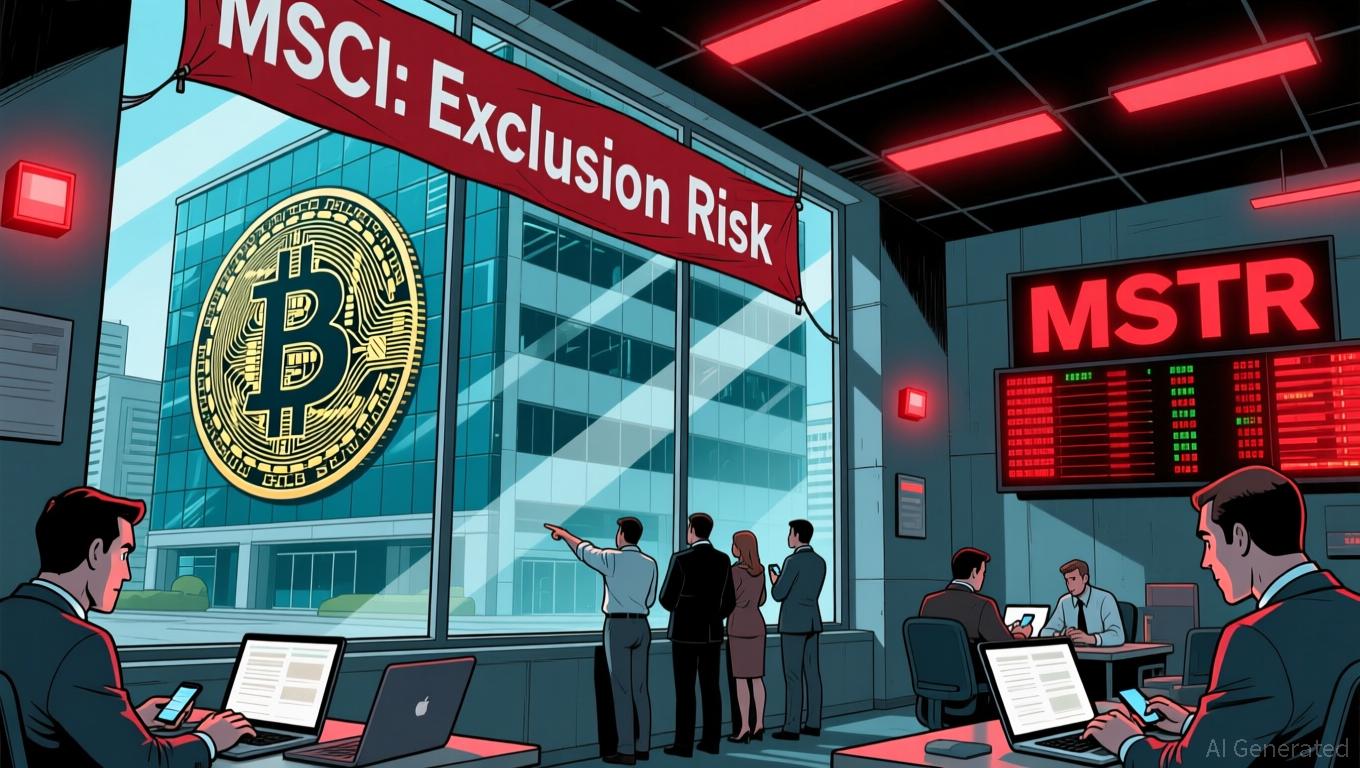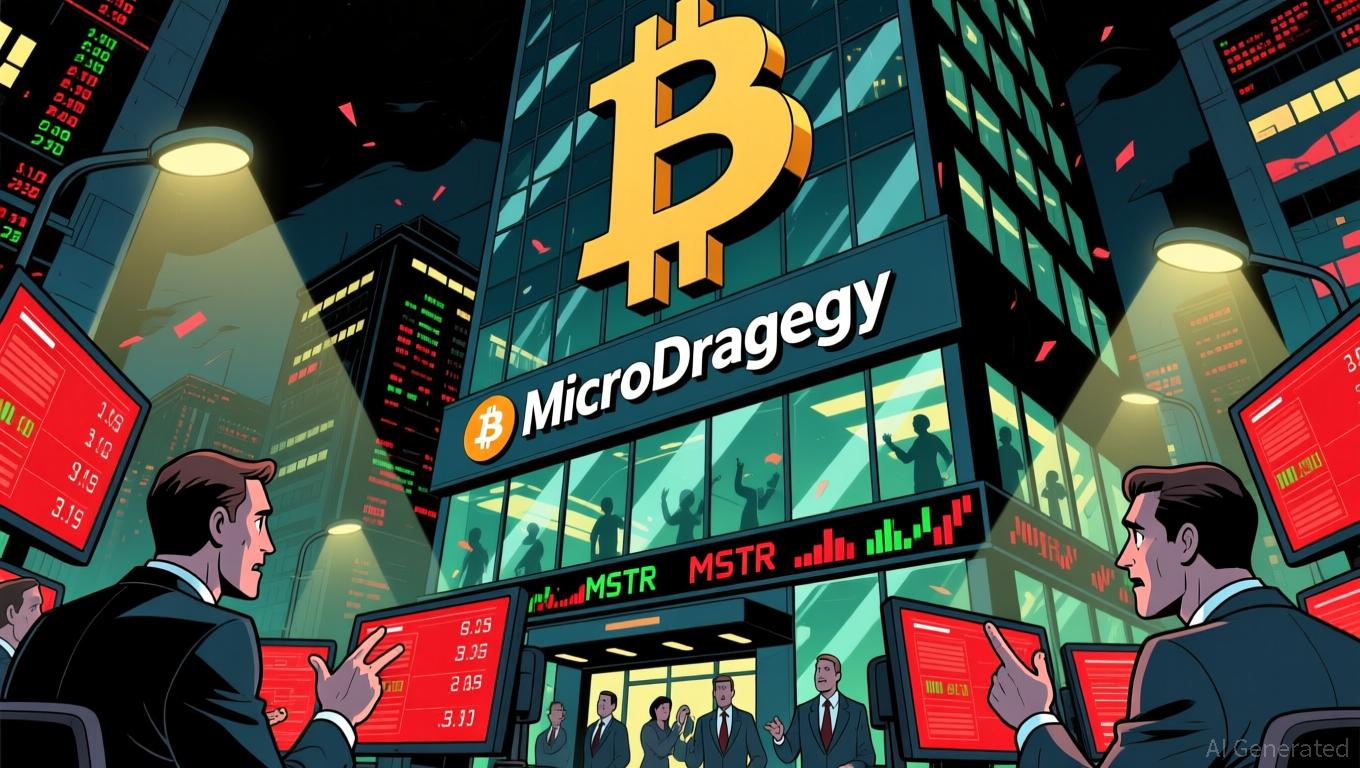ZK Atlas Enhancement: Revolutionizing Blockchain Expansion and DeFi Advancement
- ZKsync's Atlas Upgrade boosts Ethereum L2 scalability to 15,000+ TPS with sub-1s finality, addressing blockchain's throughput limitations. - Airbender proof system and modular ZKsync OS enable secure, low-cost ZK proofs, reducing cross-chain risks and enhancing smart contract compatibility. - Ethereum bridge integration creates trustless liquidity hub, accelerating DeFi growth by eliminating fragmented pools and enabling real-time cross-chain interactions. - Upcoming Fusaka upgrade targets 30,000 TPS, po
Technical Innovations: Enhanced Speed, Security, and Scalability
The Atlas Upgrade utilizes the Airbender proof system, an open-source RISC-V zkVM capable of producing concise zero-knowledge (ZK) proofs for entire blocks in just one second, with each transfer costing about $0.0001 to prove. This breakthrough significantly lowers latency and diminishes dependence on external bridges, which have been a key risk in cross-chain operations.
A central feature of the upgrade is the ZKsync OS, a modular operating system that compiles state transitions into two execution formats: x86 for running operations and RISC-V for generating proofs. This “what you execute is what you prove” model delivers strong security while ensuring compatibility with current smart contracts. The sequencer is also capable of processing over 43,000 TPS for native ETH transfers, offering a user experience comparable to conventional web2 platforms.
Ethereum Bridge Integration: Transforming Liquidity
Perhaps the most revolutionary aspect of the Atlas Upgrade is its use of Ethereum as a real-time liquidity center for L2 solutions. By removing the necessity for isolated liquidity pools,
The upgrade introduces the ZKsync Gateway, which acts as a central coordination hub, validating proofs and enabling secure, instant communication between different chains. This aligns with Ethereum’s ambition to serve as a unified capital center, allowing institutional and real-world assets (RWAs) to move effortlessly across L2s. Ethereum co-founder Vitalik Buterin has described ZKsync’s advancements as “underrated and valuable,” highlighting their importance in the evolution of ZK-secured scaling.
DeFi Impact and Investment Prospects
The Atlas Upgrade is set to make a significant mark on DeFi. With negligible transaction fees and near-instant finality, ZKsync emerges as a strong alternative to Ethereum’s often congested mainnet, drawing in high-volume platforms such as decentralized exchanges (DEXs), lending services, and NFT markets. For example, the ability to handle 15,000 TPS at a fraction of the cost could
Investors should also keep an eye on the upcoming Fusaka upgrade, set for December 3, 2025, which
Top Investment Themes
- ZK-Based Protocols: Projects that utilize ZKsync’s modular OS and Airbender prover—such as privacy-centric DeFi solutions or cross-chain bridges—stand to gain the most from the upgrade’s scalability improvements.
- Infrastructure Providers: Firms that supply tools for
ZKproof creation, sequencer operations, or interoperability will likely see rising demand as L2 usage grows.
- Ethereum Ecosystem Stakeholders: The Atlas Upgrade’s liquidity features could renew interest in assets native to Ethereum, especially those bridging into ZKsync’s L2 framework.
Summary
The ZKsync Atlas Upgrade marks a significant leap forward in blockchain scalability, tackling Ethereum’s persistent challenges with throughput and costs. By integrating ZK proofs, modular execution, and native Ethereum liquidity, it sets the stage for a new phase of DeFi expansion. For investors, this is more than a technical achievement—it’s a strategic turning point, offering the chance to benefit from the next generation of decentralized infrastructure innovation.
Disclaimer: The content of this article solely reflects the author's opinion and does not represent the platform in any capacity. This article is not intended to serve as a reference for making investment decisions.
You may also like
Bitcoin News Update: Removal from Index May Undermine MSTR’s Bitcoin-Based Strategy
- JPMorgan warns MSTR faces $8.8B in forced selling if MSCI excludes it from indices due to 50%+ digital asset threshold. - MSTR's stock dropped 67% since November 2024 peak as its valuation increasingly aligns with Bitcoin holdings (mNAV ~1.1). - CEO Saylor defends MSTR as "Bitcoin-backed enterprise," but critics argue its financial model lacks sustainability outside benchmarks. - Retail backlash against JPMorgan intensified, with figures like Grant Cardone closing accounts amid short-selling allegations.

Bitcoin News Update: MSTR's Business Role Under Scrutiny as MSCI Considers $8.8B Removal
- MSCI's proposed exclusion of MicroStrategy from global indices could trigger up to $8.8B in outflows due to its 50%+ bitcoin asset allocation. - JPMorgan warns the removal would damage MSTR's liquidity and capital-raising ability, with shares down 67% since November 2024. - CEO Michael Saylor defends MSTR's operational identity, rejecting "passive bitcoin fund" claims while adding $835M in crypto holdings. - MSCI's Jan. 15 decision could disrupt index-linked investor exposure to bitcoin, with MSTR shares

Bitcoin News Update: Institutions Acquire Crypto Shares Amid Rising Bearish Bets on Bitcoin
- Bitcoin's $80,000 put options dominate trading with $2B open interest, signaling sharp bearish reversal after its worst monthly drop since 2022. - ETF outflows accelerated declines, with $3.8B November redemptions, while Ark Invest added $38.7M in crypto equities amid market fragmentation. - Analysts warn leveraged losses ($19B in October) and forced liquidations amplify downturn, with Citi noting critical support at $80,000. - Market remains divided: Binance calls pullback "healthy," while Peter Brandt

Hyperliquid News Today: Speculation Drives Meme Coin Rally Despite Regulatory Alerts
- Meme coins surged on Nov 24, 2025, with PIPPIN rising 80% in 2 hours to $0.053 and $53.15M market cap. - BANANA (+20%) and TNSR (+50%) joined the frenzy, reflecting speculative flows shifting to high-risk assets amid Bitcoin stabilization. - Perpetual DEX protocols hit $4.24M daily revenue while Fed rate-cut expectations and token unlocks fueled volatility. - Regulators warned of risks as India exposed an AI-generated deepfake fraud, highlighting sector instability and regulatory scrutiny. - Analysts cau
